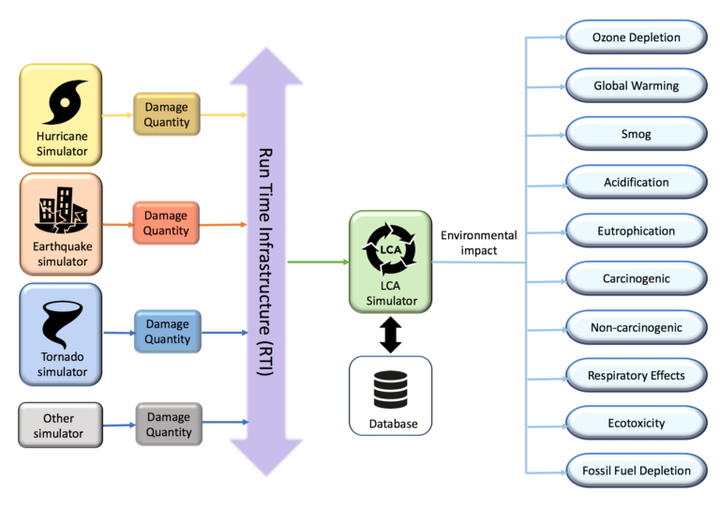Environmental Impact of Community Resiliency

The building industry is one of the main sectors contributing to adverse environmental impacts. In the past decades, a variety of life cycle assessment (LCA) studies have been done on different typical phases over the buildings’ life cycle, including construction, operation and demolition of the building to understand and assess these impacts. Meanwhile, buildings are likely to go through damaging hazards given its extra-long service life, such as earthquake, hurricane and tsunami. The recovery process after hazards sincerely aggravates buildings’ environmental impact, which could be eliminated or reduced through improvement of community resiliency.
The proposed framework allows for life cycle assessment (LCA) under different hazard scenarios. The LCA simulator constantly receives damage quantity data of community buildings and infrastructures from other simulators through the run-time infrastructure (RCI). The LCA simulator can simulate the environmental impact of the damage hazards caused on buildings by retrieving information from the database. By comparing across different scenarios, the framework gives us insights into how community resiliency can contribute to reduce the environmental impacts during recovery.